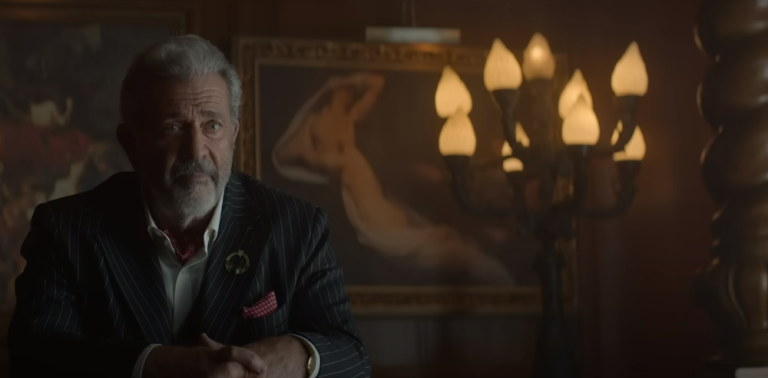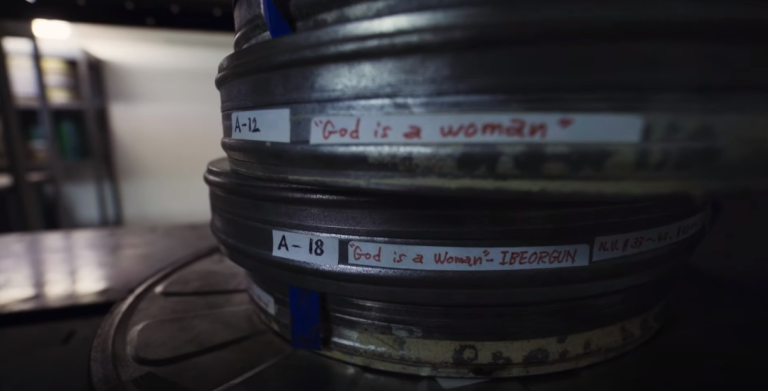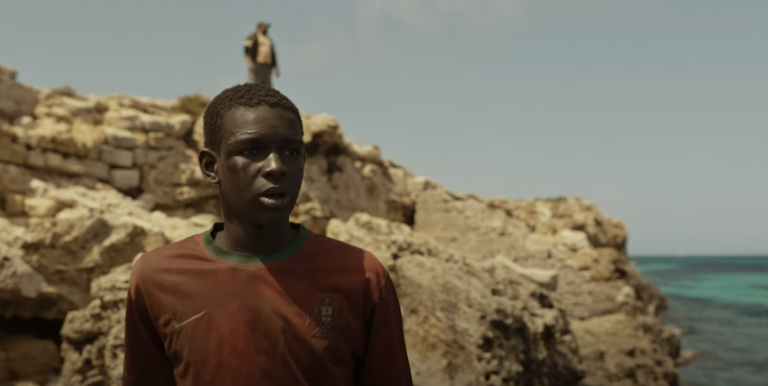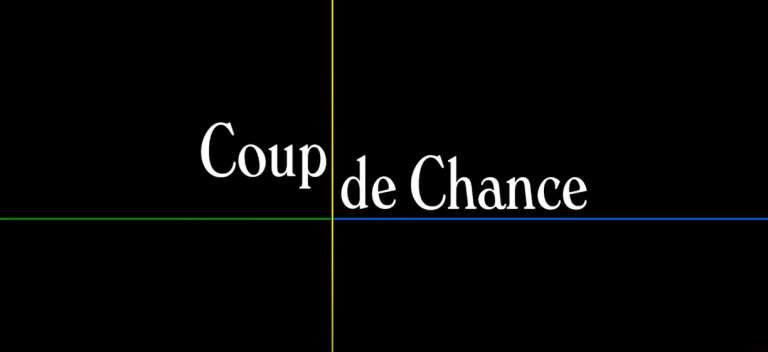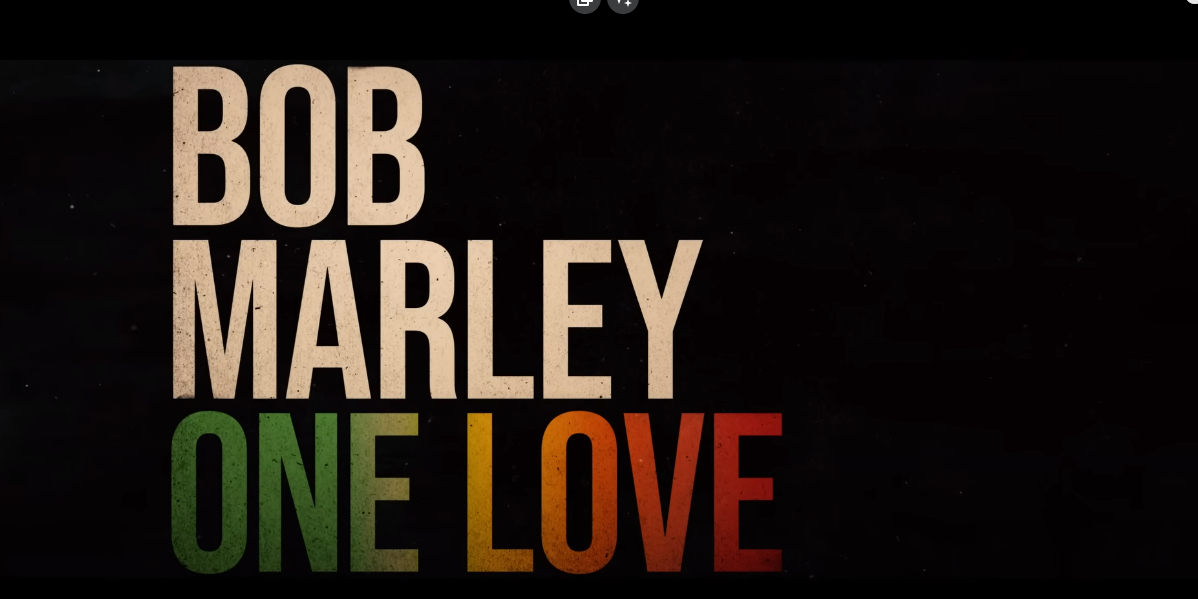
The movie “Bob Marley: One Love” lacks a clear purpose or originality. It’s like many other music biopics, seeming more focused on selling records than telling an engaging story. While films like “Bohemian Rhapsody” or “Whitney Houston: I Wanna Dance with Somebody” at least try to show interest in their subjects, “One Love” fails with uneven plot and empty dialogue. It treats Marley as if he’s just a disruption to its music-focused narrative.
The director, Reinaldo Marcus Green, is criticized for his approach in “One Love.” While his debut film “Monsters and Men” showed promise, his subsequent works like “Joe Bell” and “King Richard” fell short. In “One Love,” Green returns to using broad themes and shallow characterizations, repeating the flaws of his earlier films.
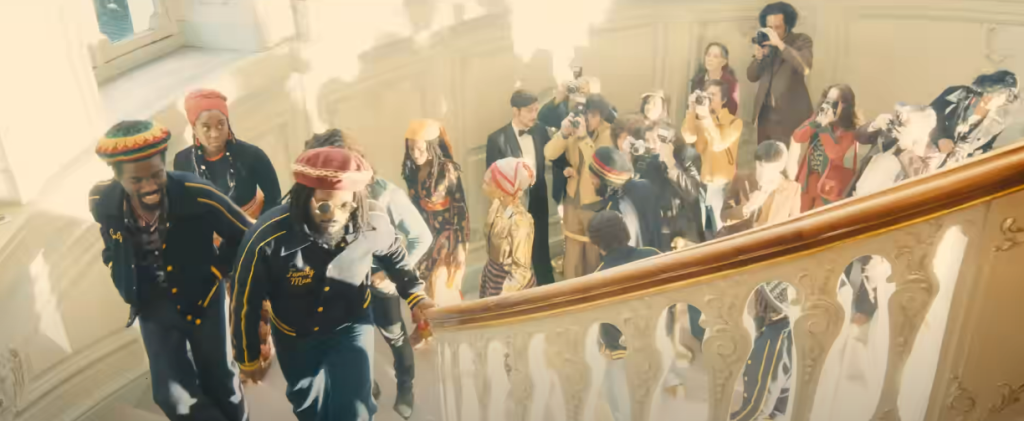
Despite most of the blame falling on Green, he isn’t the only one responsible for the film’s failure. The script, co-written by Green, Terence Winter, Frank E Flowers, and Zach Baylin, is poorly crafted, lacking subtlety and depth, presenting events as if they were bullet points.
The story takes place from 1976 to 1978, focusing on Bob Marley’s efforts to organize a unity concert to end political violence in Jamaica. The film introduces Marley’s large family, including his wife Rita, his manager Don Taylor, and some members of his band, the Wailers. Marley’s life is constantly threatened, as his home is heavily guarded. We also learn that he enjoys jogging and soccer, but beyond that, not much else is explored.
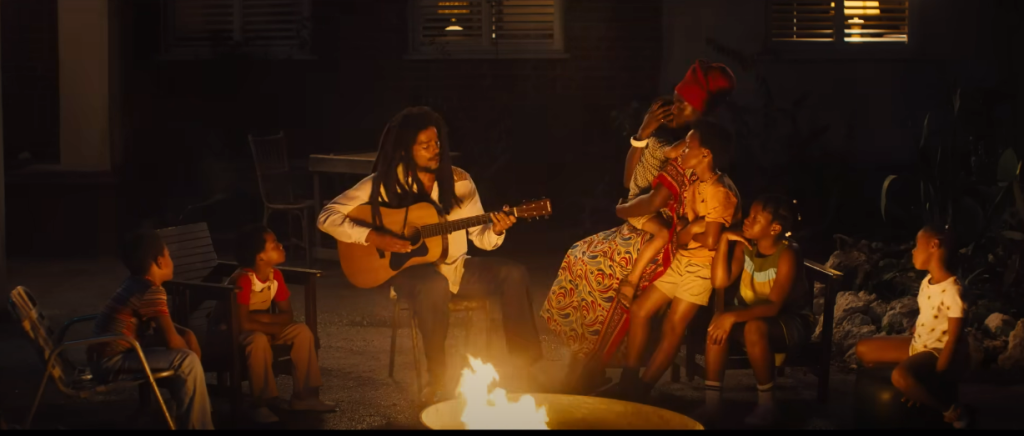
The film initially seems focused on the Smile Jamaica concert but rushes through it quickly. There’s little exploration of Marley’s artistry or the political context. After Marley, Rita, and Donald are shot, they leave Jamaica. Marley and the Wailers go to London to record a new album, while Rita and the family move to Delaware to live with Marley’s mother, although why she lives there isn’t clear and she’s hardly shown in the film.
In “One Love,” the writing lacks subtlety and rushes through important narrative moments. Flashbacks quickly cover Marley’s childhood, his relationship with Rita, and the Wailers’ record deal. Scenes in the recording studio hint at a focus on Marley’s album “Exodus,” but they feel superficial. The process of songwriting is depicted in a clichéd manner, with songs being composed in seconds. The decision to name the album “Exodus” is made abruptly, and soon they’re on a European tour without much buildup.
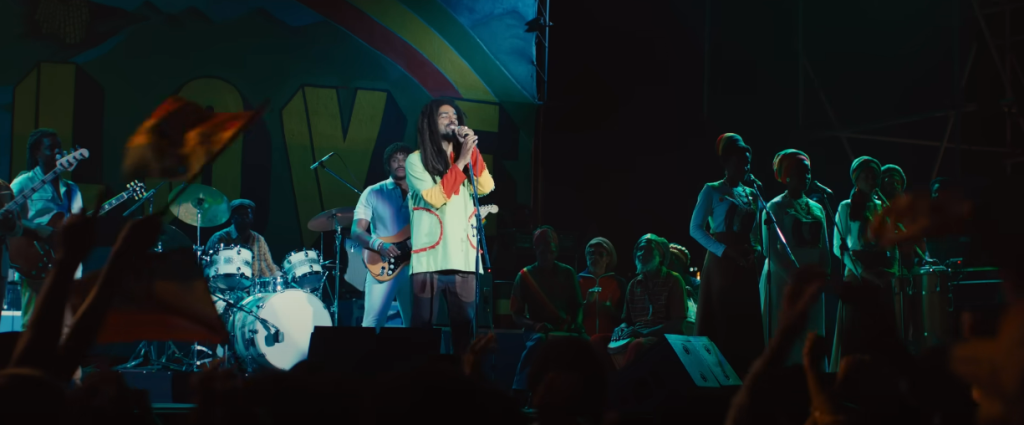
In the music biopic “One Love,” you’re left wondering when it will delve into Marley’s politics, religion, or the significance of reggae. Instead, the film is weighed down by poor wigs, clichéd dialogue, and unappealing visuals. Even uplifting songs are undermined by mundane scenes. For example, towards the end, Marley sings “Redemption Songs” by a campfire while his children gather around, but the moment feels forced and lacks depth.
The actors in the film struggle with its lackluster approach. Ben-Adir’s portrayal of Marley feels more like imitation than genuine musical expression during concert scenes. Lynch’s performance is hindered by melodramatic monologues that lack authenticity. Rita’s character is underdeveloped, only serving to provide exposition or offer wisdom without showing the depth of her relationship with Marley.

Before the film started, Ziggy Marley, Bob Marley’s son, assured viewers that it would offer an “authentic depiction” of his father. Personally, I dislike the idea of “authenticity” in art because it suggests there’s only one true version of a story. Instead, I prefer films that sincerely explore the complexity of a person’s life. “One Love” lacks that depth and energy, which is what made Marley’s music so vibrant and soulful.
| Aspect | Summary |
|---|---|
| Purpose & Originality | “Bob Marley: One Love” lacks a clear purpose or originality, focusing more on selling records than telling an engaging story. |
| Director’s Approach | Director Reinaldo Marcus Green is criticized for his approach, which includes using broad themes and shallow characterizations. |
| Script Quality | The script, co-written by Green, Terence Winter, Frank E Flowers, and Zach Baylin, is poorly crafted, lacking subtlety and depth. |
| Plot Summary | The story spans from 1976 to 1978, focusing on Bob Marley’s efforts to organize a unity concert in Jamaica to end political violence. |
| Focus & Exploration | The film lacks exploration of Marley’s artistry, political context, or the significance of reggae music. |
| Smile Jamaica Concert | While initially focused on the Smile Jamaica concert, the film rushes through it with little depth. |
| Character Development | Character development is lacking, with Marley’s wife Rita being underutilized and Marley’s childhood and relationships being covered briefly in flashbacks. |
| Songwriting & Album Name | The process of songwriting and naming Marley’s album “Exodus” is depicted superficially, lacking depth and buildup. |
| Performance Challenges | Actors struggle with the lackluster approach, with portrayals feeling more like imitation than genuine expression. |
| Lack of Depth & Energy | The film lacks depth and energy, with poor wigs, clichéd dialogue, and unappealing visuals undermining even uplifting moments. |
| Authenticity Concerns | Ziggy Marley’s promise of an “authentic depiction” is critiqued, with a preference for films that explore complexity rather than claiming one true version of a story. |

